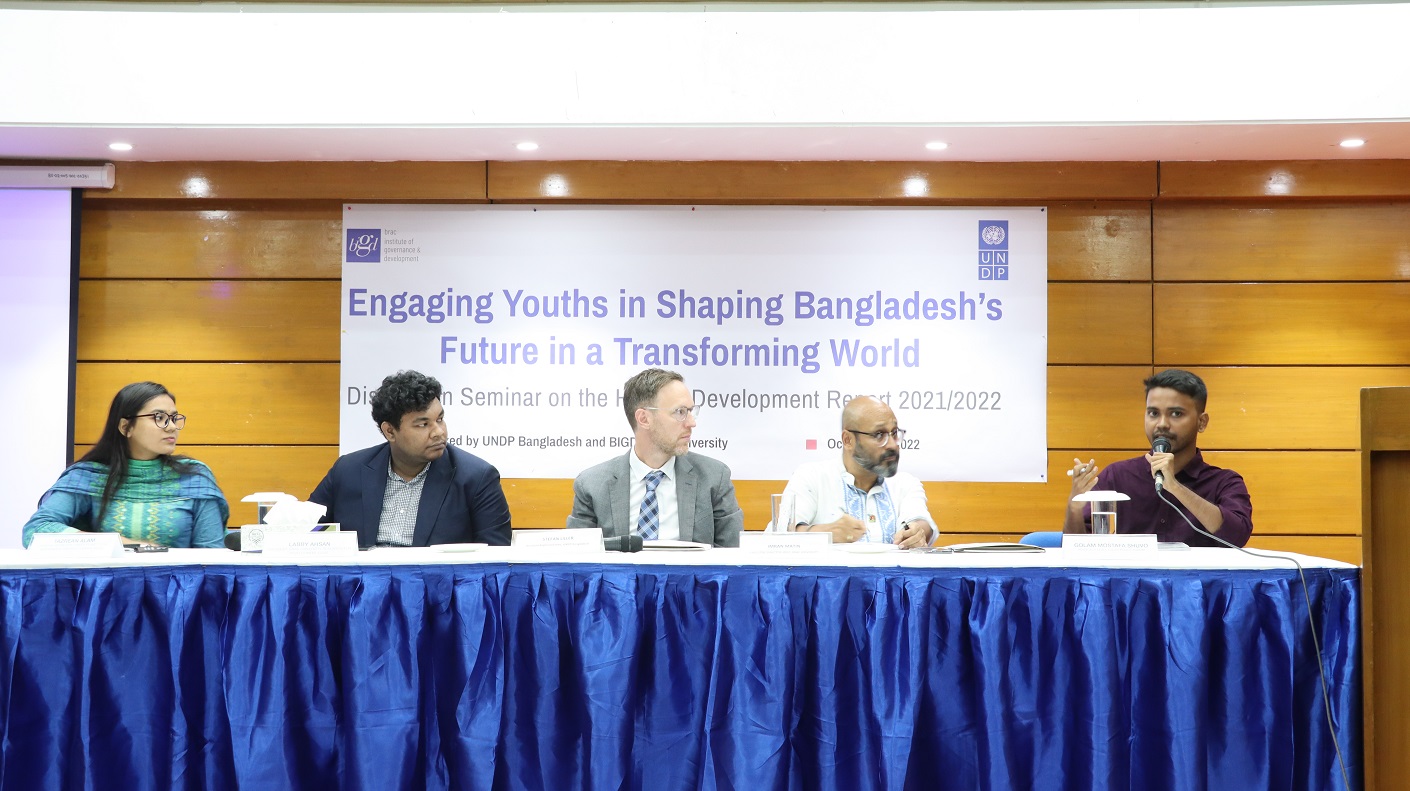The pressure would negatively impact the transformation of generation Z, the changemakers of tomorrow
90% of countries see decline in human development: report
October 19, 2022

UNDP Bangladesh and Brac Institute of Governance and Development (BIGD) have jointly organized a seminar to discuss the findings of the recently launched #HumanDevelopmentReport 2021/2022 at Brac University, highlighting the role of meaningful #youth engagement to drive #Bangladesh towards a prosperous #future.
The progress in human development achieved in the last couple of years is being reversed as the world faces several challenges arising from uncertainty due to dangerous planetary pressures, sweeping societal transformation, and increased polarisation, economists and experts said at an event on Tuesday.
They also said these would negatively impact the transformation of generation Z, the changemakers of tomorrow, especially in a country like Bangladesh which continues to face the brunt of more persistent threats like climate change.
The warnings came at a seminar titled "Engaging Youth in Shaping Bangladesh's Future in a Transforming World" focusing on the Human Development Report jointly organised by UNDP Bangladesh and the Brac Institute for Governance and Development (BIGD) at the Brac University.
The UNDP published the Human Development Report for 2021-2022 in September highlighting about 90% of countries in the world which have seen a decline in human development.
Bangladesh achieved a score of 0.661 out of a total score of 1, being placed in 129th position out of 191 countries, according to the report.
Stefan Liller, resident representative of the UNDP Bangladesh, said at the event that youth perspectives, energy and meaningful participation is what will help secure a more inclusive, peaceful, and prosperous future for all in Bangladesh.
He emphasised on how the future depends on the choices society makes about people, their lives, the beings around them and the overall environment.
Dr Imran Matin, executive director of the BIGD, moderated the discussion.
Dr Nazneen Ahmed, country economist, UNDP Bangladesh, said people are passing a time of anxiety, stress and polarisation. "We are facing many difficulties and it sounds very gloomy," she added.
She also said the UNDP report shows that the uncertainty may also create opportunities.
She said most of the uncertainty arises from a crisis regarding poverty, inequality, hunger, water, sanitation, health, energy and environment.
Policy makers must amplify voices of those most impacted by climate change.
"Local ownership and solutions can work wonders in tackling the challenges," she said.
"There will be differences in views, but we need to respect these differences through education, recognition, and representation. It will enable us to coexist peacefully and reduce the polarised views among ourselves."
AKM Fahim Mashroor, founder and CEO of Bdjobs.com, emphasised on balanced youth engagement in technological advancement and innovation.
He also said many people have succeeded in doing business through innovation beyond the big corporations due to the development of computer and internet technology.
However, as the development of technology has also gone to the corporate level, now again small companies, especially startups, are falling
The media links

 Locations
Locations


